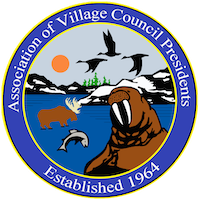The AVCP region is in line to receive millions of dollars in funding as a result of the 2020 and 2021 fishery failures. The United States Department of Commerce has allocated $55,984,834 as a result of fishery failures in Norton Sound, the Yukon River, Kuskokwim River, Chignik, and Southeast Alaska salmon fisheries, for 2020 and 2021.
Association of Village Council Presidents Chief Executive Officer, Vivian Korthuis provided the following testimony at the June 15th Alaska Department of Fish and Game Federal Fishery Disaster Listening Session.
My name is Vivian Korthuis, and I am the Chief Executive Officer for the Association of Village Council Presidents (AVCP). AVCP is the largest tribal consortium in the Nation. Our members are the 56 federally recognized tribes of the Yukon-Kuskokwim Delta in 48 villages along the Yukon River, Kuskokwim River, and Bering Sea Coast. Our tribal members are suffering from an unprecedented salmon crash, which began in 2020 and accelerated to crisis levels in 2021. The crisis continues. I would like to thank Governor Dunleavy and his administration for submitting the 2020 and 2021 disaster requests on behalf of our affected communities, and the Alaska Department of Fish and Game and Alaska Federation of Natives for hosting this listening session.
Some of the families hardest hit by the 2020 and 2021 disasters are our families in rural communities who depend on subsistence fishing to feed themselves and their children throughout the winter and where the cost of living is among the highest in the United States. Also, the families who depend on the small commercial fisheries in our region for cash to purchase necessities and engage in subsistence activities are suffering. Funding must be prioritized for our subsistence and small-scale commercial fishers.
Tribes and tribal organizations have extensive experience providing services in rural Alaska, including direct benefit payments to tribal members. Most recently, tribes distributed direct funding to tribal members through the CARES Act and ARPA. Tribes/Tribal Organizations should be considered as an option to directly distribute payments to affected tribal members.
We have managed our resources, including salmon, successfully for thousands of years. There is a wealth of knowledge passed down by our elders to today’s subsistence fishers – over thousands of years. Western science alone has not provided solutions. If we meaningfully seek and use Indigenous Knowledge when making decisions, we will begin to find solutions that work. Disseminating and incorporating Indigenous Knowledge into future management plans must happen now. Funding should be made available to tribes and tribal organizations to facilitate bringing Western and Indigenous Knowledge together to find solutions.
In closing, I would like to remind us that – while these disaster payments are very important and urgently needed in our communities – even more urgent is the need to find a lasting solution to this crisis. I look forward to us continuing to work together as partners.
Quyana!






